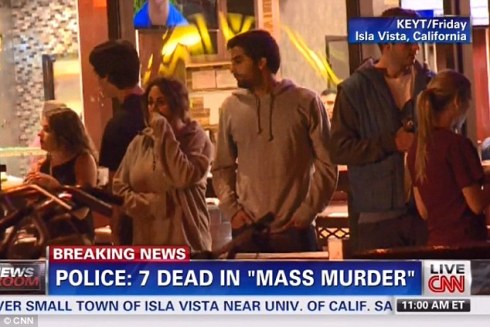Trigger warning for rape
Yesterday, FCKH8 released a video called F-Bombs for Feminism: Potty Mouthed Princesses Use Bad Words for Good Cause that quickly went viral, and has been shared hundreds of thousands of times on Facebook alone. This isn’t surprising – it’s a video designed to hit that marketing sweet spot where people are equal parts outraged, delighted and just plain not sure what to think. I’d be willing to bet that this video has had nearly as many hate-shares and “is this offensive?” shares as it has people posting it because they think it’s great.
FCKH8’s video is carefully calculated to appeal to a certain type of young, hip feminist (as well as being designed to cause offence and outrage among right-wing conservatives). It starts out with a bunch of sweet little girls wearing princess costumes striking stereotypically cute poses and simpering “pretty” at the camera. Then there’s a record scratch, and suddenly the girls are throwing out cuss words left, right and centre: “What the fuck? I’m not some pretty fuckin’ helpless princess in distress. I’m pretty fuckin’ powerful and ready for success. So what is more offensive? A little girl saying ‘fuck,’ or the fucking unequal and sexist way society treats girls and women?”
The video then has the sweet, princessified little girls tackle a bunch of feminist issues, namely the pay gap, violence against women, and sexual assault – all while swearing up a storm, of course. What FCKH8 wants you to take away from this is that society feels more uncomfortable about cute little girls saying the word fuck than it does about the very real issues faced by women on a daily basis. Instead, what I see is a video that relies on the shock value of girls in princess costumes cussing and talking about rape in order to increase its shareability.
First of all, let’s get one thing straight: this video is not some kind of PSA, it’s an advertisement. FCKH8 is a for-profit t-shirt company – emphasis on the profit – that has put together an exploitative and manipulative two minute and thirty five second commercial for t-shirts. And while FCKH8 asserts that all of this is “for a good cause” (they’ve promised to donate $5 from each t-shirt sale to as-yet-undisclosed organizations) the only cause that’s being promoted by this video is their bank account.
There is nothing feminist about using little girls as props in order to sell t-shirts – in fact, I would argue that this is the opposite of feminism. There is nothing feminist about exploiting a bunch of little girls by having them swear and talk about rape statistics just so that FCKH8 can make a quick buck. There is nothing feminist about creating an association between potty-mouthed little kids and social justice – and that’s not a slight against potty-mouths, because I fucking love swearing, but rather a statement on the fact that this video plays into a lot of the negative stereotypes that people already have about feminism.
On top of all that, there is for sure nothing feminist about having girls as young as six years old discussing rape and sexual assault; I would hope that at that age, most kids have never even heard the word rape, let alone had to recite facts about it for an audience of thousands, maybe even millions. I feel sick that these children are being taught about subjects like rape just so that a t-shirt company can make a provocative advertisement. The point that especially crosses the line between “this is problematic” and “I want to flip a table” is the moment where the five little girls spout off the statistic that one in five women will be raped in their lifetime, and then ask which of them it will be. Having a little girl demand to know if she’ll be raped just so that you can sell a few shirts is so far beyond the realm of what should be acceptable that I have no words for it.
This is not how we protect our children. This is not how we empower girls. Forcing a child to ask an audience of adults if she’ll someday become a rape statistic so that your company can line its pockets with cash is definitely not the way to practice social justice.
This isn’t the first time that FCKH8 has done this kind of thing either – they recently came under fire after they exploited the events in Ferguson in order to sell “anti-racism gear.” As with the F-Bomb Princess video, the Ferguson video featured a bunch of children rattling off facts about racism before promising to donate a portion of each t-shirt sale to some unspecified charity. This is their business model, apparently: take something that people care deeply about, commodify it, and then make money. As a strategy, it’s slick and smart as hell. It’s also pretty unethical.
Feminism isn’t a commodity that can be bought and sold. Rape statistics should not be used as a sales tactic. Children do not exist to be used as provocateurs in manipulative advertisement campaigns for clothing.
It would be really great if FCKH8 would realize that using little girls as shock-value props in their t-shirt commercial is not feminist in any sense of the word. No little kid should have to wonder aloud whether or not they’ll be raped one day, and especially not just so some grownup can make money.






